
3 Household Items That Can Cause Lung Cancer
3 Household Items That Can Cause Lung Cancer—One of Them Is Used Daily!
These three items might increase the risk of lung cancer—a frightening disease for many people.
In today's modern life, household items have become indispensable. However, not everyone realizes that some of these products may pose health risks, potentially increasing the likelihood of developing lung cancer—a dangerous disease influenced by factors like genetics, lifestyle, living environment, and even familiar daily-use items. Below are household items that could be potential causes of lung cancer in your home.
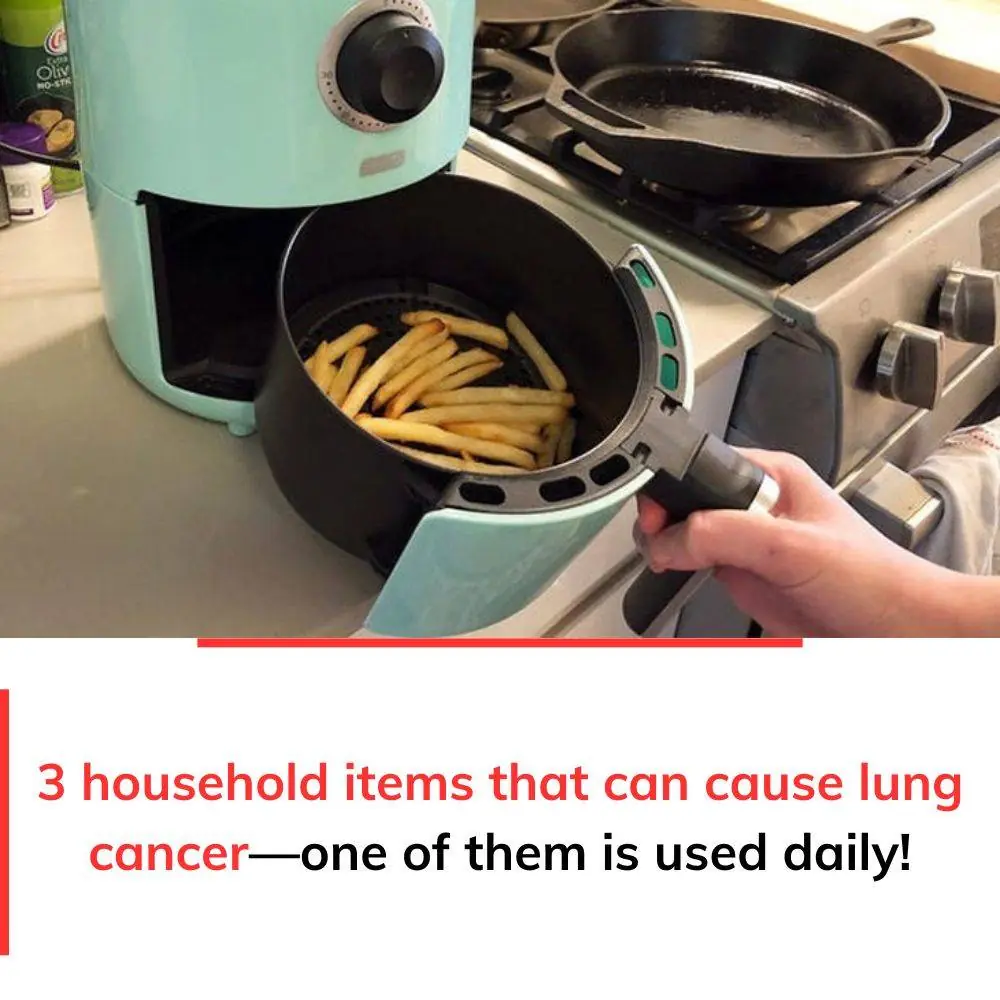
Air Fryers
Air fryers and electric ovens are increasingly popular in modern households. They allow users to enjoy delicious meals without the need for oil, reducing cardiovascular risks. However, when operating at high temperatures, particularly above 200°C, they can emit PM2.5 particles, a highly dangerous air pollutant.
These particles can penetrate deeply into the lungs, causing inflammation and irritation, and even increasing the risk of chronic respiratory diseases and lung cancer. Therefore, it’s essential to use these devices carefully, avoid cooking at excessively high temperatures or for prolonged periods, and place them in well-ventilated spaces or use air purifiers to remove PM2.5 particles.
Chemical Cleaners
Everyday household cleaning products also hide unexpected dangers. These often contain ammonia, formaldehyde, and volatile organic compounds (VOCs), which can evaporate into the air. Inhaling these substances can cause serious harm to the lungs and respiratory system.
Ammonia and formaldehyde are toxic substances that can cause symptoms like coughing, breathing difficulties, and reduced lung function. Frequent exposure to these chemicals increases the risk of chronic lung conditions and even lung cancer. Choosing safer products, using protective measures like masks and gloves, and ensuring good ventilation are crucial when cleaning.
Laser Printers
One of the least suspected culprits is the seemingly harmless laser printer, a common device in offices and homes. These machines can release ultrafine carbon particles into the air during operation. These particles, ranging from 10 to 100 nanometers in size, can remain suspended in the air for a long time and deeply penetrate the respiratory system.
The result is not only irritation but also inflammation, prolonged lung damage, and impacts on cardiovascular health. The risk increases with continuous exposure to high concentrations of carbon particles. To minimize harm, users should place printers in open, ventilated areas, regularly clean the machines, and focus on proper maintenance.
Understanding the potential health risks is the first step in prevention and protecting yourself and your family. Household items, while convenient, must also be used in ways that do not compromise health. Additionally, users should know how to choose and use household items effectively and safely.
News in the same category


Sunlight at Work Beats Artificial Light for Glucose Control in Type 2 Diabetes

Bariatric Surgery or GLP-1 Receptor Agonists? Long-Term Effects on Fat Loss and Body Composition

If You Have Fig Leaves, You Have Gold—and You Didn’t Even Know It

It’s surprising how unclear the link between chicken color and quality still is for many people
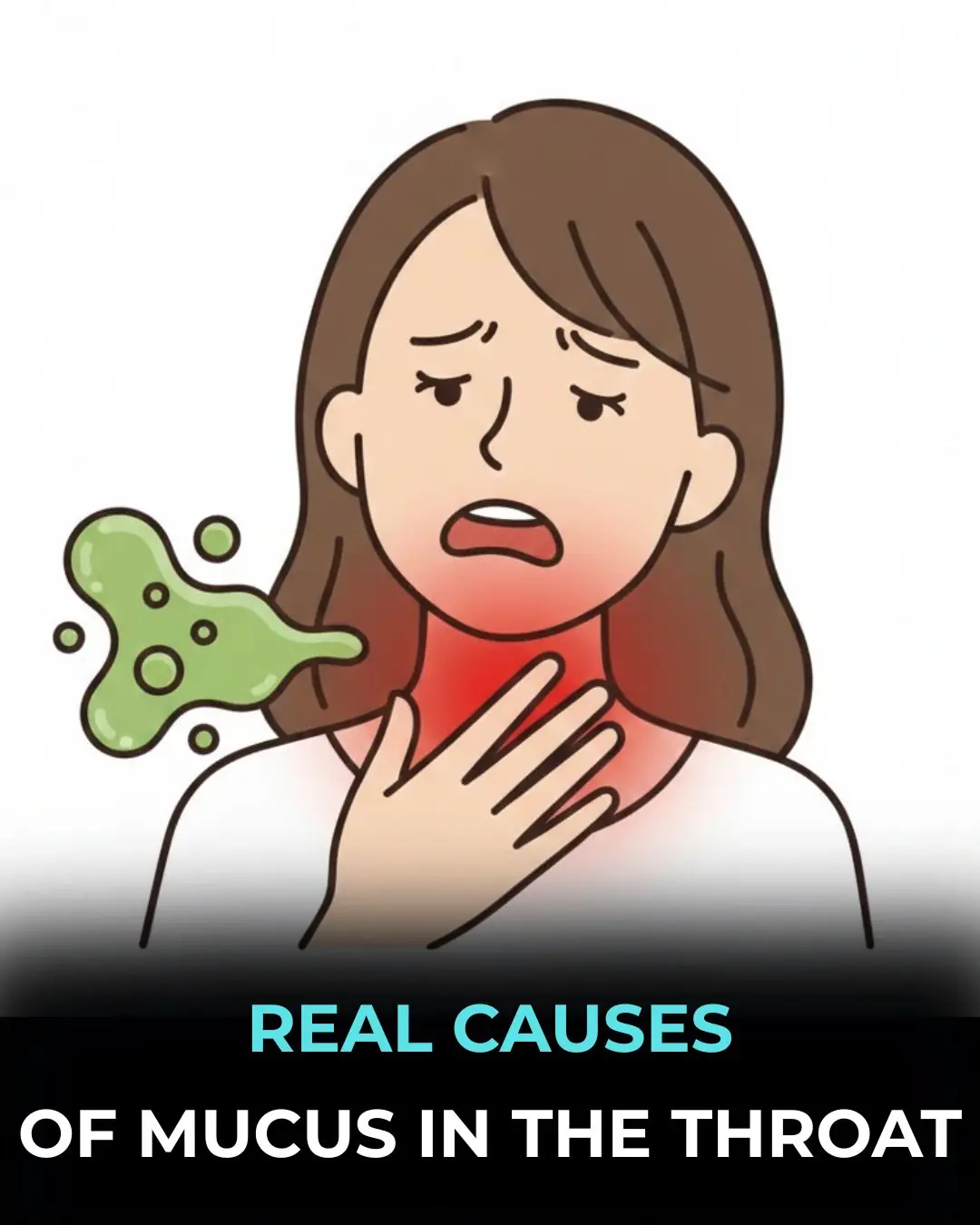
🤧 Constant Phlegm in Throat? The Real Causes (and How to Actually Get Rid of It)

Why Daily Showers After 65 May Do More Harm Than Good
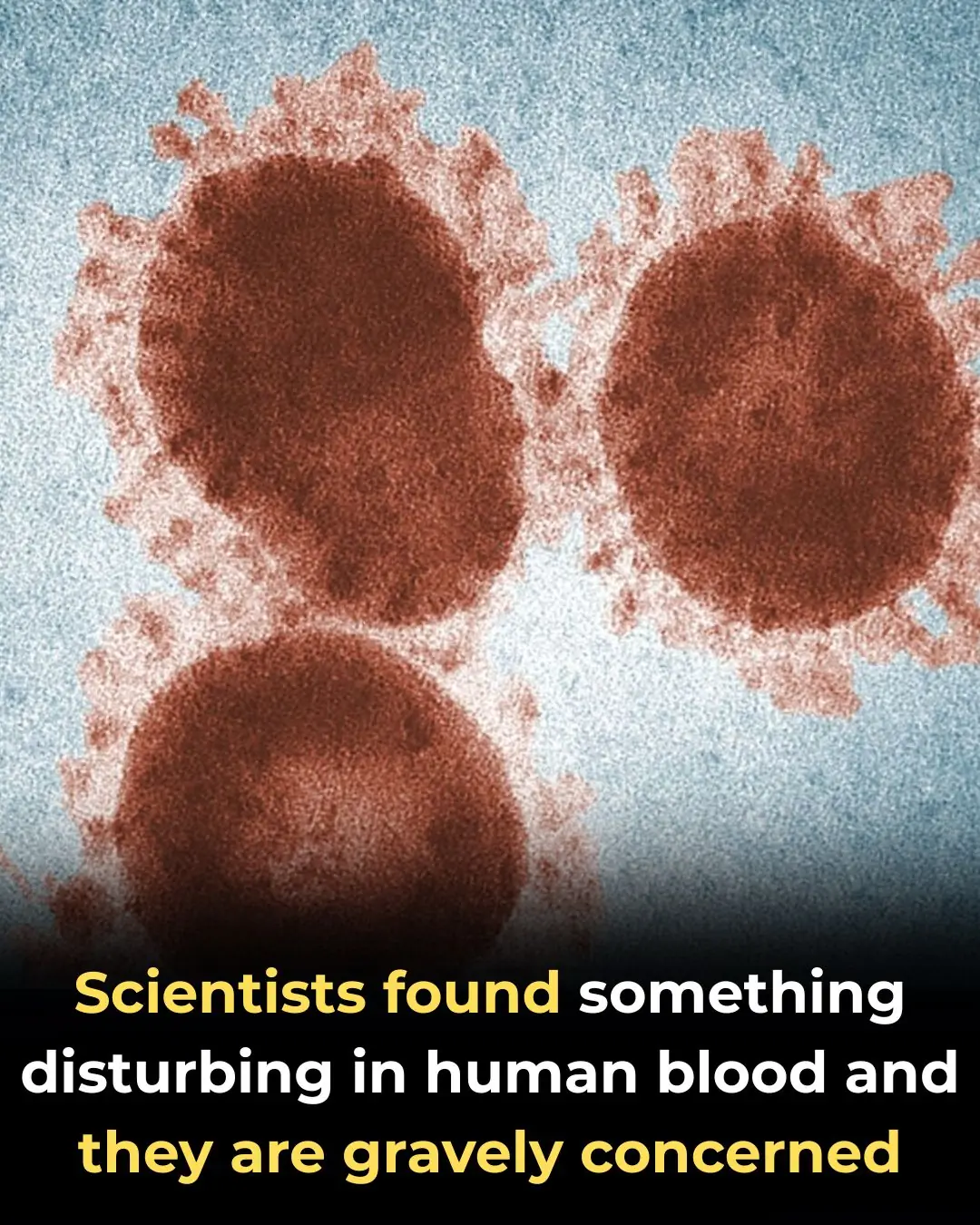
Scientists Discover Alarming Substance in Human Blood, Raising Serious Concerns

7 easy ways to quickly unclog your lymph nodes to reduce swelling and flush out toxins

What Really Happens When You Eat a Banana Before Bed

Natural Ways to Relieve Cough and Chest Congestion

People whose mouths feel dry when sleeping at night need to know these 8 reasons

Why Eating More Processed Meat Increases Your Risk for Serious Health Problems

That detail isn’t innocent… and few people know it

Doctor Reveals That Eating Guava Can Cause Powerful Changes in Your Body

The High-Sugar Alert: Recognizing the 12 Key Symptoms Your Body is Showing You

Boiling Potatoes Without Water: Use This Simple Ingredient for Soft, Sweet, Fluffy Results

Which Fruits Should Cancer Patients Avoid? Dietary Guidance During Cancer Treatment
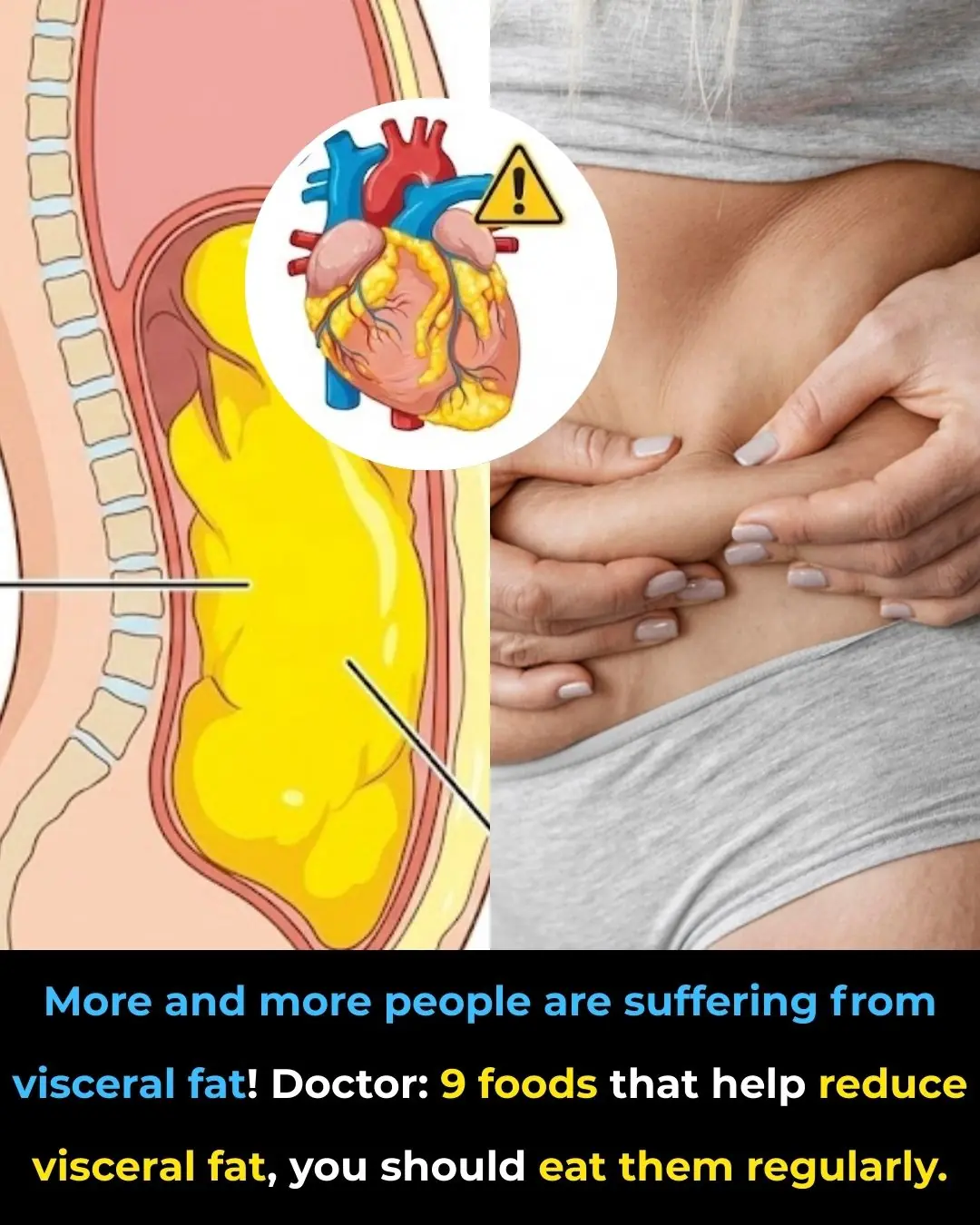
Visceral Fat Is Increasing: Doctors Recommend 9 Foods to Help Reduce It and Should Be Eaten Regularly
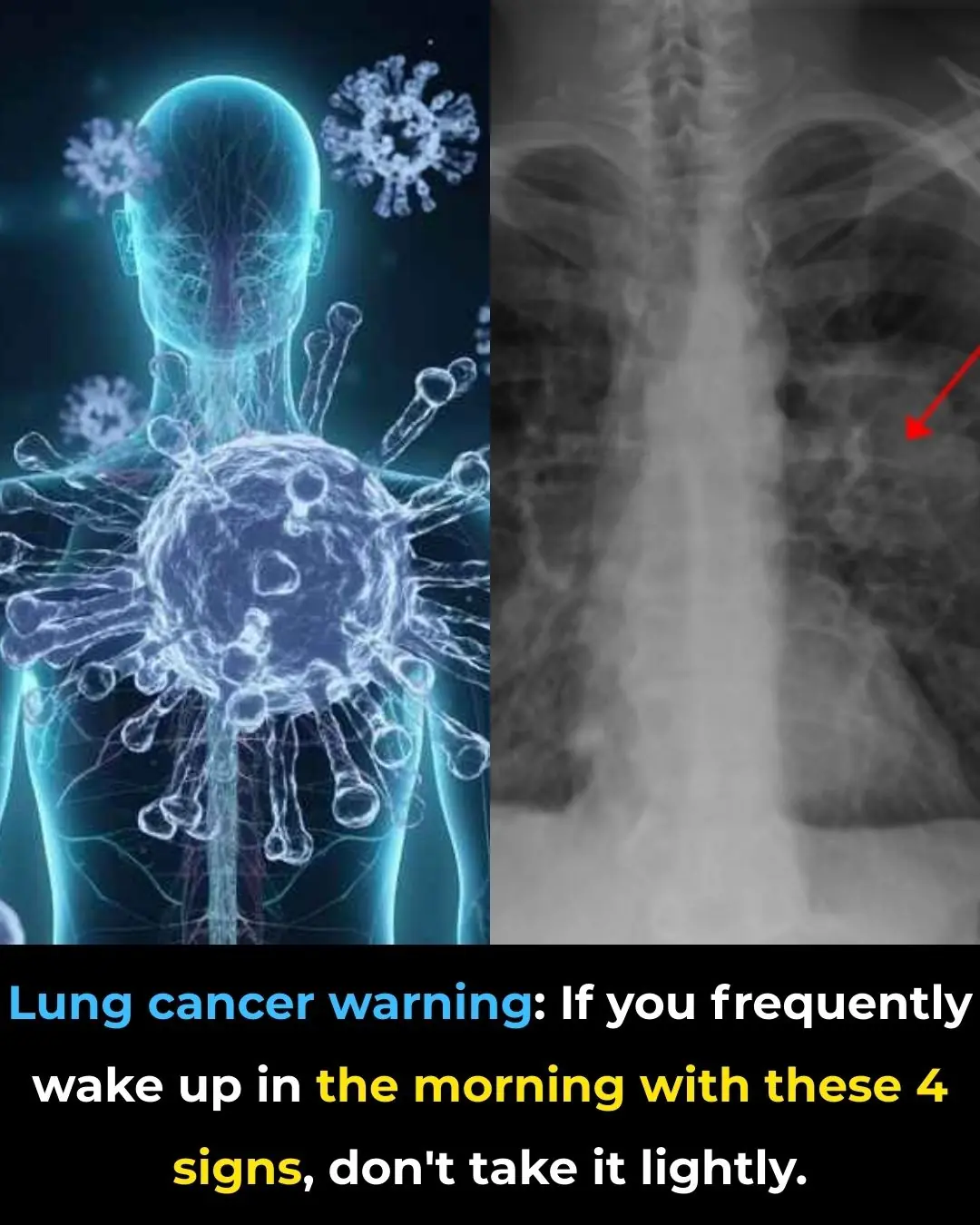
Lung Cancer Warning Signs: If You Often Notice These 4 Symptoms in the Morning, Don’t Ignore Them
News Post

Google Chooses India for Pixel 10 Manufacturing: A Landmark for Make in India 🚀🇮🇳📱

Dr. Navneet Jain of Indore: A Patriot in a White Coat 💉🇮🇳❤️

A New Beginning for Gabbar

A Labourer’s Gift of Hope: The Inspiring Story of Anjiney Yadav 🚲❤️🇮🇳

India Becomes the World’s Second‑Largest Road Network: A Milestone in Connectivity 🛣️🇮🇳🚀

Adding Yoga to Opioid Use Disorder Care May Speed Recovery From Opioid Withdrawal

Sunlight at Work Beats Artificial Light for Glucose Control in Type 2 Diabetes

Bariatric Surgery or GLP-1 Receptor Agonists? Long-Term Effects on Fat Loss and Body Composition

How to Whiten Laundry Naturally
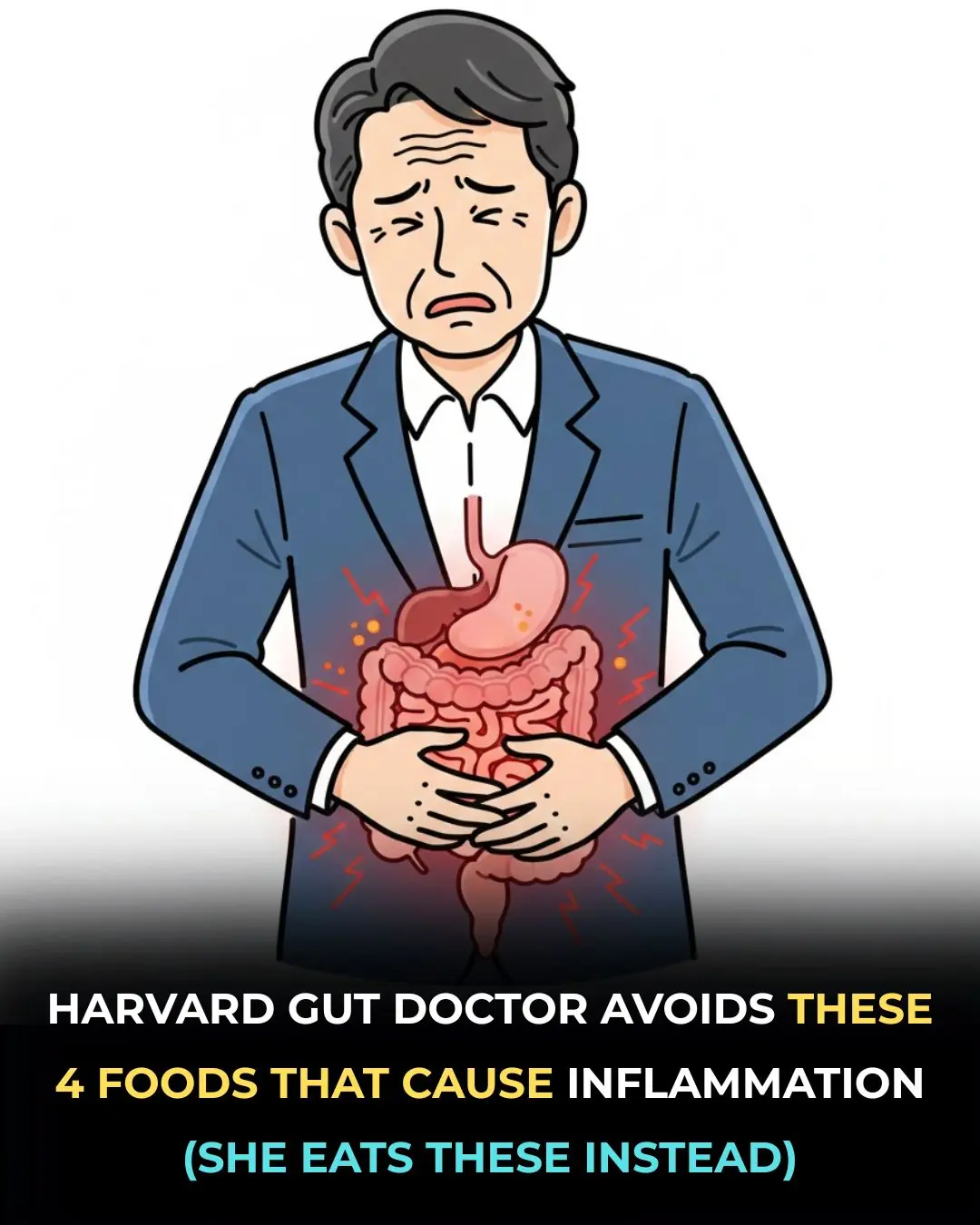
Harvard Doctor Reveals Foods You Should Avoid to Prevent Inflammation

If You Have Fig Leaves, You Have Gold—and You Didn’t Even Know It

Doctor Warns of Mesotherapy’s Risky Side, Causing Reptile-Like Skin

It’s surprising how unclear the link between chicken color and quality still is for many people

🤧 Constant Phlegm in Throat? The Real Causes (and How to Actually Get Rid of It)

Why Daily Showers After 65 May Do More Harm Than Good

Scientists Discover Alarming Substance in Human Blood, Raising Serious Concerns

7 easy ways to quickly unclog your lymph nodes to reduce swelling and flush out toxins

What Really Happens When You Eat a Banana Before Bed

Natural Ways to Relieve Cough and Chest Congestion
